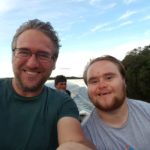The small community in the heart of the Amazon Rainforest had given us so much.
In a dugout canoe, a young man named Ne brought us along the river, so swollen in the rainy season it covered a hundred square miles of jungle. We were paddling through the forest canopy, with ten meters of submerged branches and trunks below us, to places where we watched giant otters and pink dolphins and caught piranha on a cane pole.
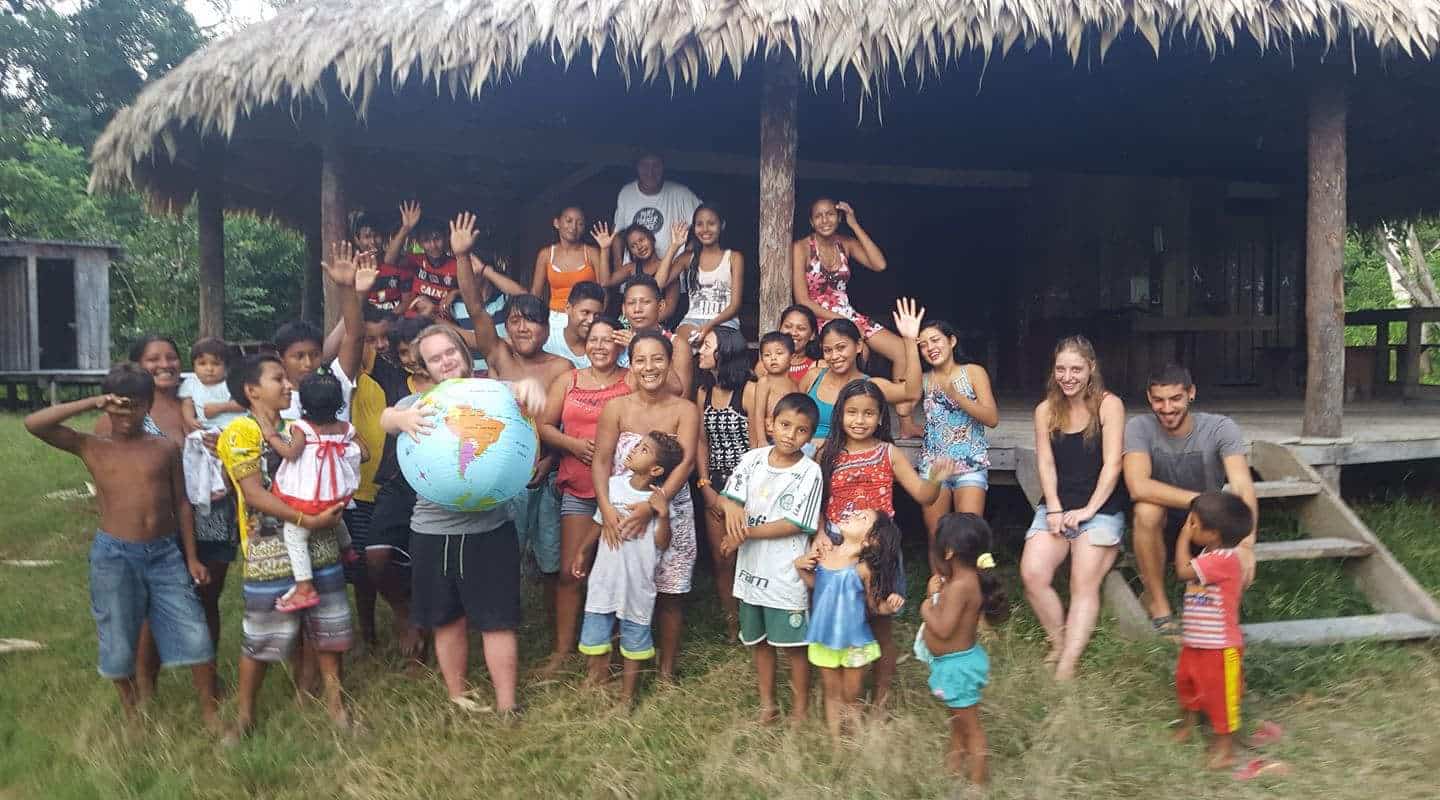
Fionn with a small community in the heart of the Amazon Rainforest. Picture credit: Fionnathan
We’d trekked on the land, clearing the path with machetes, a single tortoise crawling near our feet. We fell asleep to the constant loud drone of insects and woke to monkeys howling overhead and the songs of myriad birds.
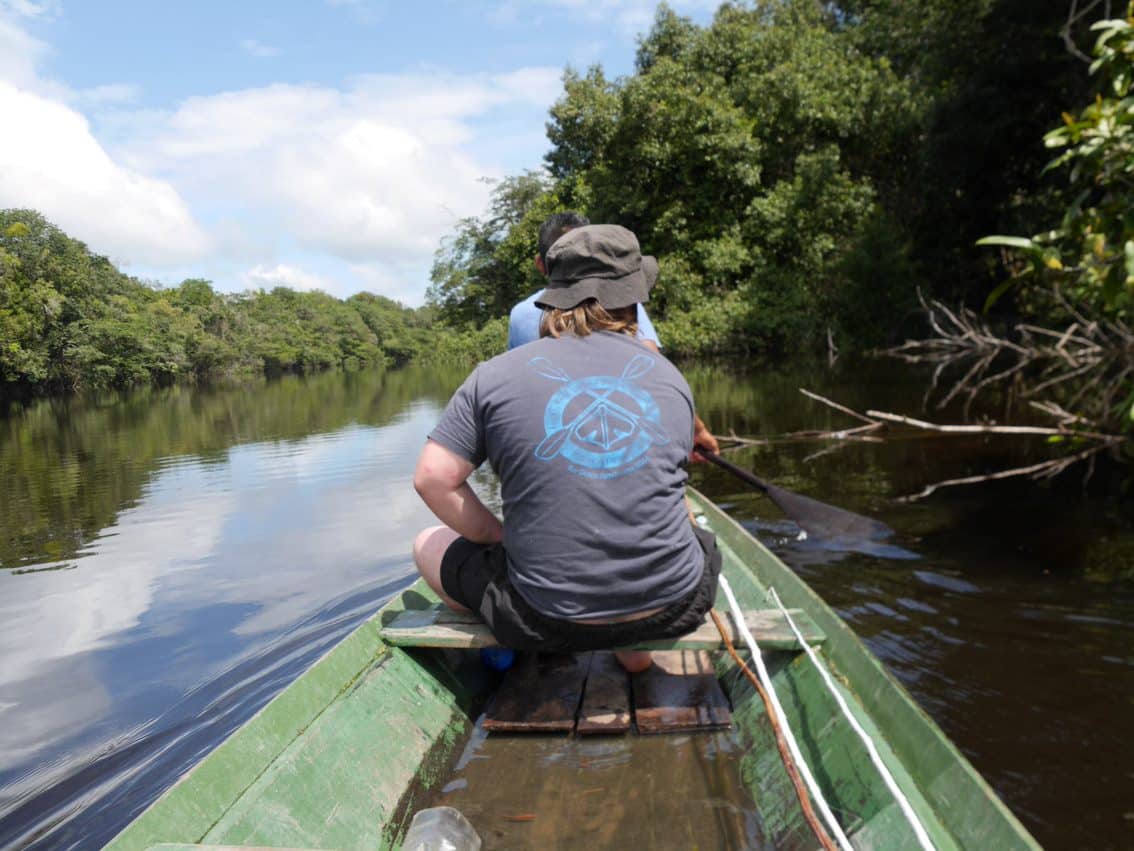
Fionn travelling in a dugout canoe in the Amazon Rainforest. Picture credit: Fionnathan
Harmonious co-existence with nature
We learned lessons about co-existence with nature. For example, near a raft at the river’s edge used daily to clean fish, there could be found a huge black caiman, ready to eat the scraps. While the women worked and chatted, their children, some just two or three years old, would leap in the water and scamper back onto the raft, over and over. The caiman keeping watch nearby. And whenever he took too much interest, slowly approaching, the women would simply call the children back, or scoop them out of the water, hardly pausing in their conversation. Such a harmonious attitude toward the risks of forest life shows a live-and-let-live approach that we all need to learn.
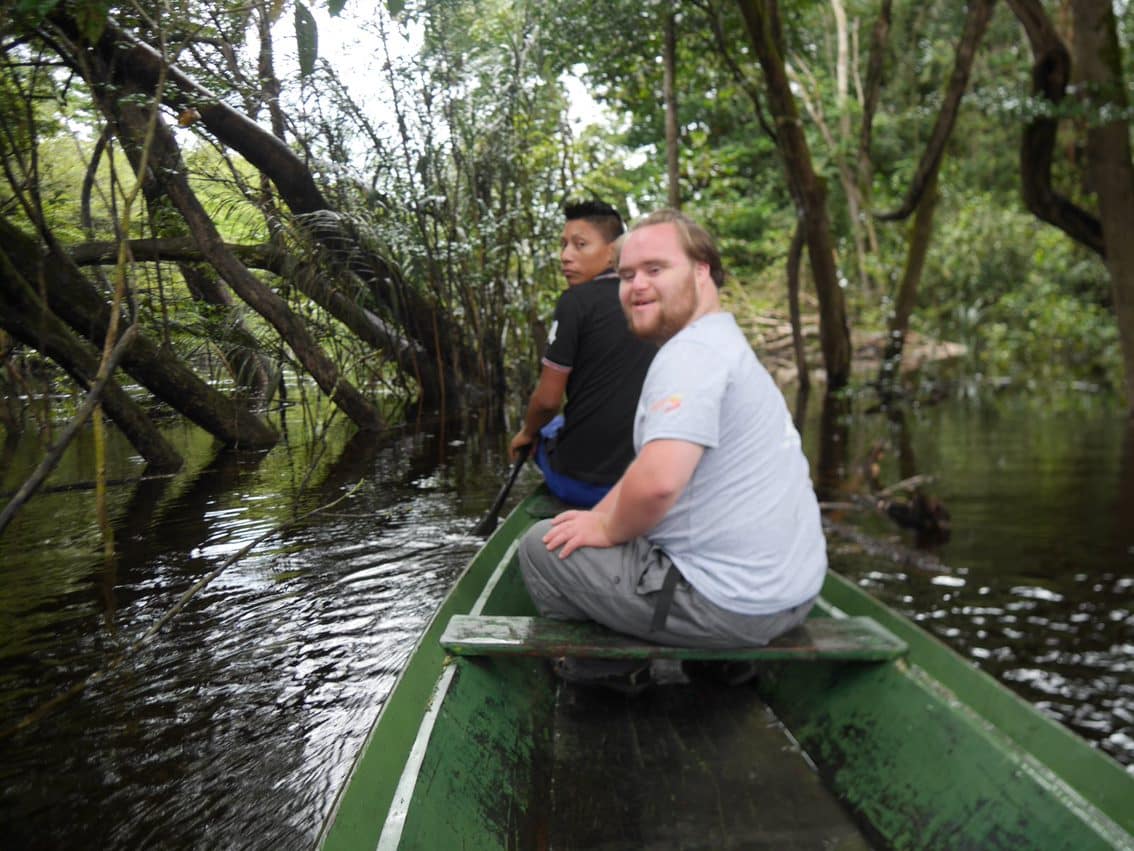
Fionn in a dugout canoe travelling to a small community in the heart of the Amazon Rainforest. Picture credit: Fionnathan
We have visited over twenty countries since starting our project seven years ago, but possibly no other trip gave us such a bounty of experiences in a single week. We had not traveled the 30-hour journey upriver empty-handed, though.
Under the grass roof of the community gathering hut, Fionn rosined his bow, and played traditional Irish music on his fiddle. The children were enchanted, the first time they had ever heard a violin played. Later, one of the village mothers told us that Fionn was the first guest with Down syndrome to venture so deep into the forest, though she has a nephew with Down syndrome who lives in the next village downriver.
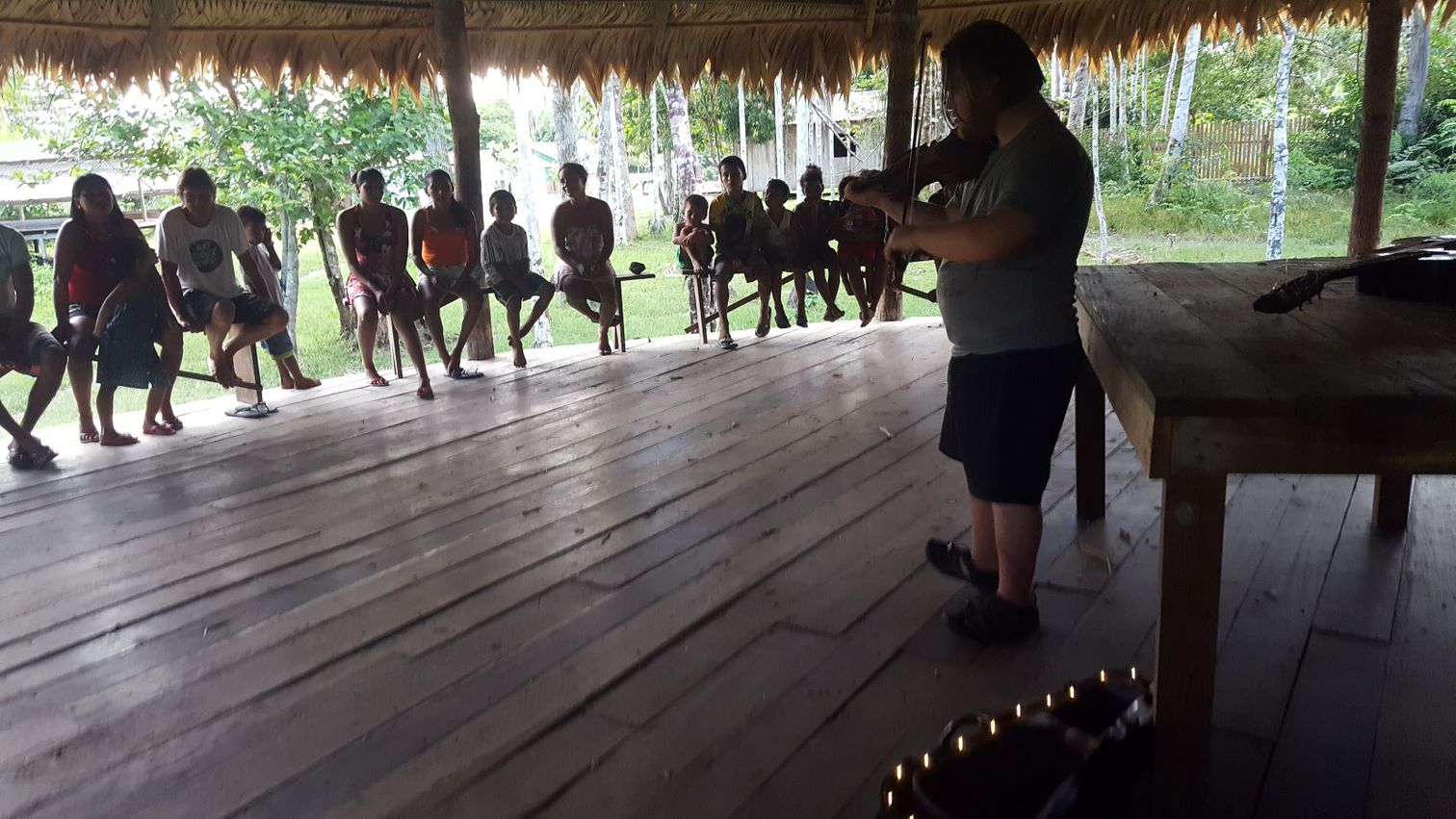
Fionn playing traditional Irish music for the local community in the Amazon Rainforest. Picture credit: Fionnathan
Who we are
We are Fionnathan, simply a son (Fionn) and father (Jonathan). We began our social enterprise when Fionn decided that the standard post-school supports for people like him could not possibly help him meet his ambitions in life. He became the first person with intellectual disability to direct his own government-funded support plan, and, along with his dad, set off to make his dreams come true.
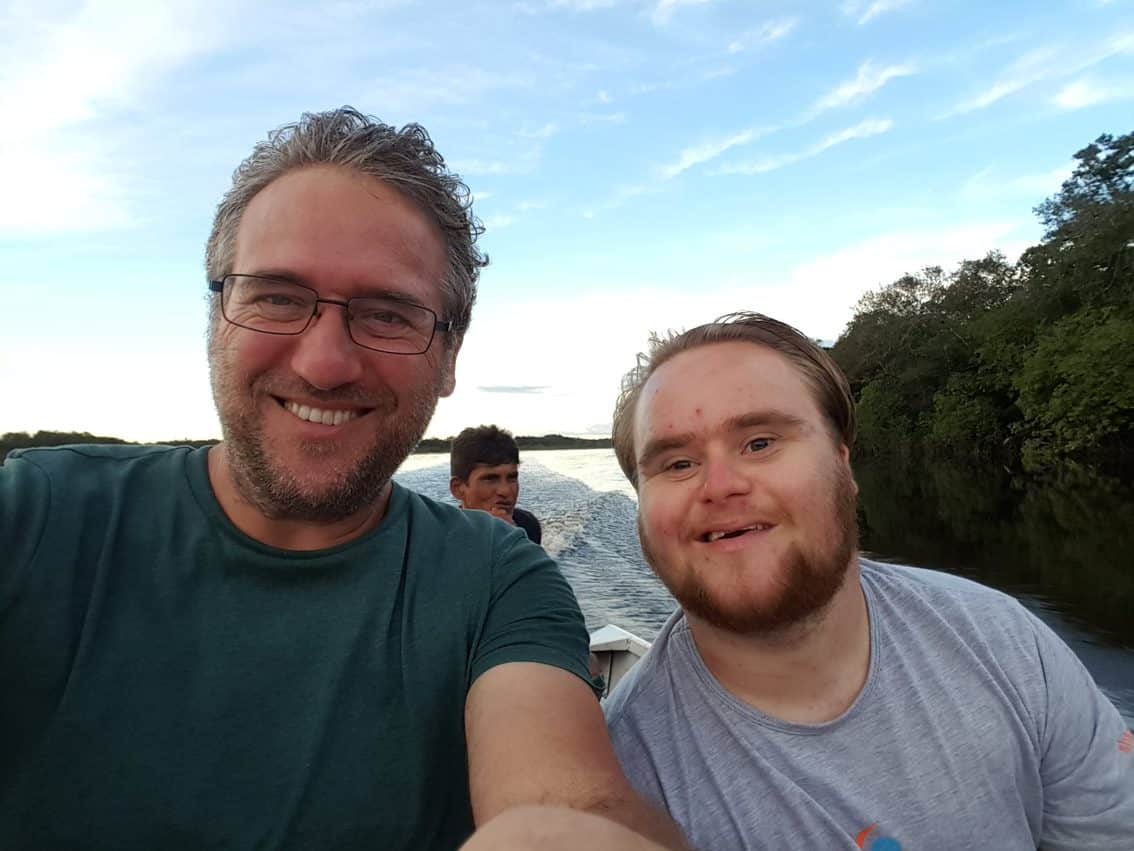
Fionn and Jonathan (aka Fionnathan) travelling through miles of Amazon jungle Picture credit: Fionnathan
Through storytelling in classrooms, film making and producing social media content, we spread a message of radical inclusion. We are deeply concerned for the health of the ecosystem, and we combine our passion for these two facets of social justice because we believe that raising awareness of the urgency to protect natural biodiversity will be much more effective if the intersection with human neurodiversity is at the forefront.
Our home is the West Coast of Ireland, though we are modern-day nomads, as well. When Fionn was a lad, he used to say he wanted to grow up to be ‘the next David Attenborough’. He joined many nature groups, and spent many hours researching, in the field and in the library. When he was just 17, we applied to the Irish Heritage Council, and Fionn became their youngest ever Heritage Expert. Jonathan had 25 years’ experience teaching in Steiner Waldorf Schools, so he was the ideal co-teacher. We have traveled to 100 schools, teaching 10,000 children about the wildlife of Ireland.
Inspiring interest in nature through optimism
We believe that optimism is the best approach to inspiring children about nature. Perhaps teenagers are motivated by stories of how many acres of rainforest we lose per day in far off parts of the world, and other problems adults have so far found impossible to solve. But younger children need to experience beauty and wonder through nature, and there is enough in their own back yards to keep them engaged for years. We believe that, with a strong foundation in small, local conservation projects, their interest will naturally grow to encompass a global perspective.
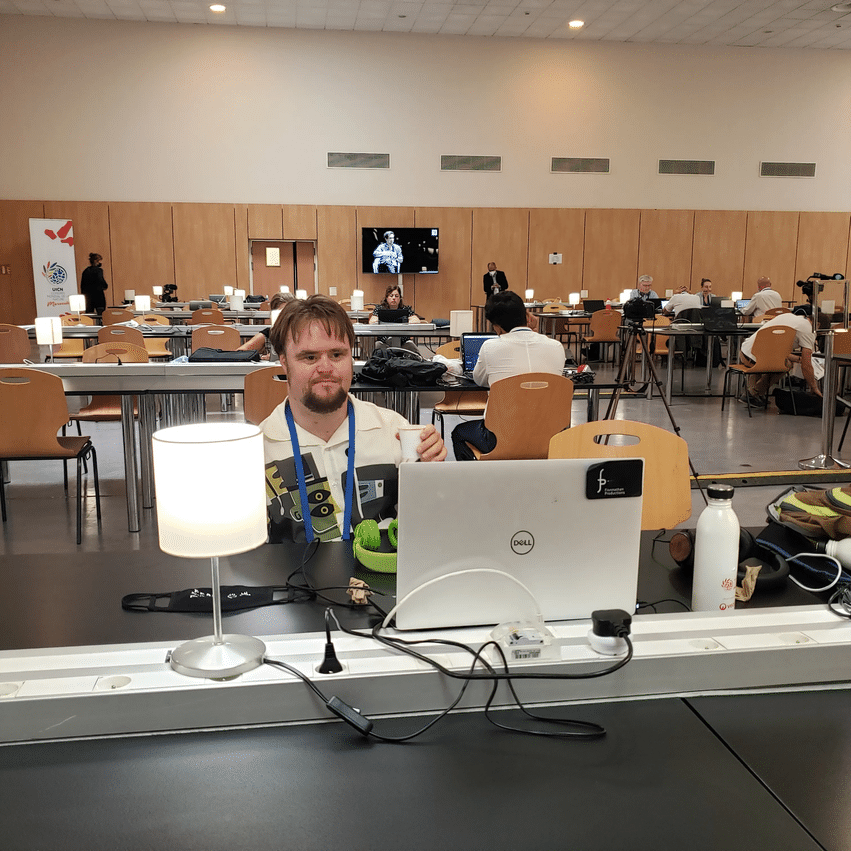
Fionn working in the media room at the IUCN World Conservation Congress. Picture credit: Fionnathan
Fionn models what is possible when such carefully nurtured seeds bear fruit. We have traveled to 22 countries, from the Amazon to Zanzibar. We work with local communities everywhere we go, teaching (and learning) about how to be of service to humanity, and to the earth. Because we strongly believe that fulfilment in life is achieved through finding how your gifts can serve the community. (Of course, we’re still figuring out what exactly that is for us).
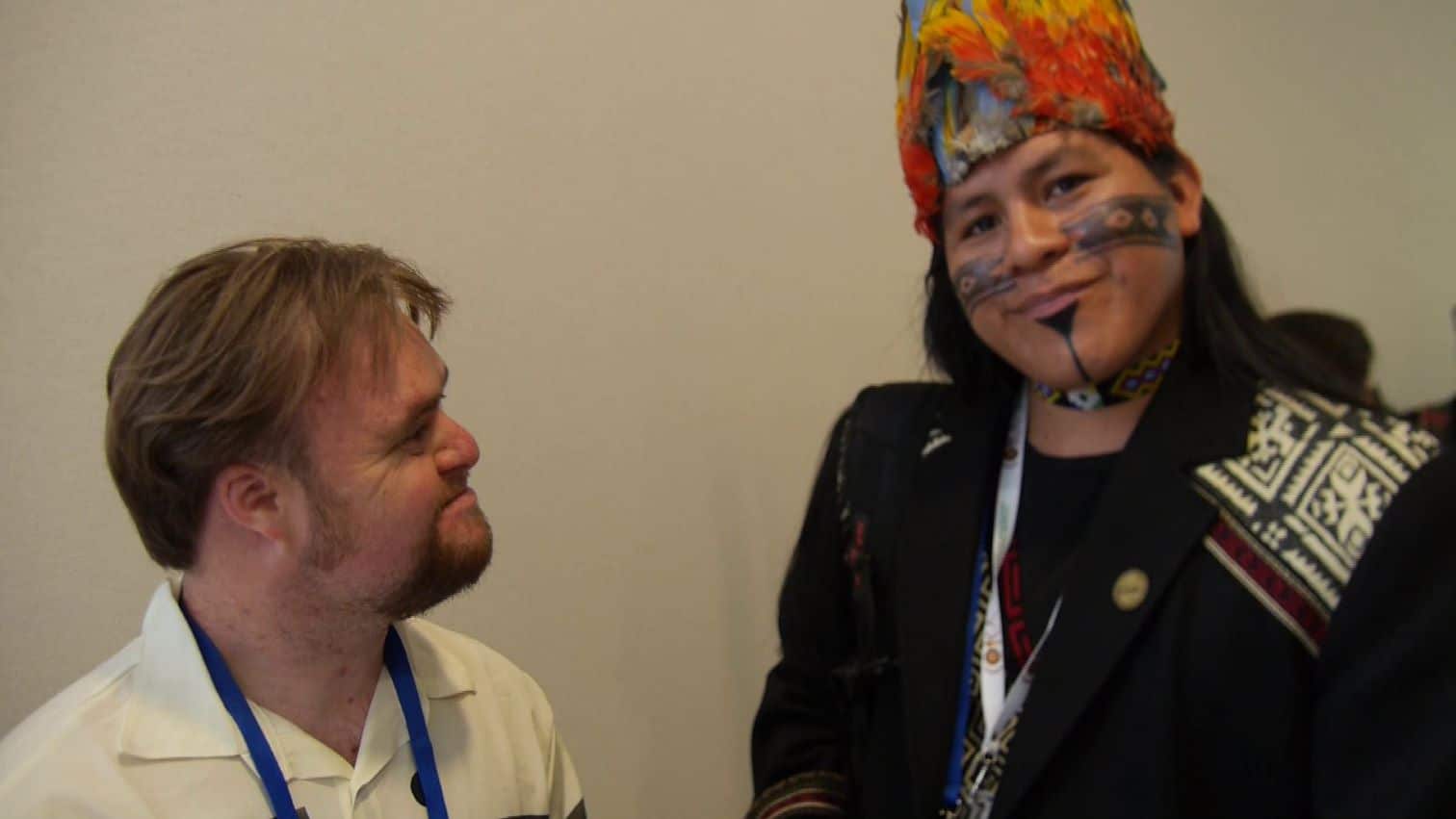
Fionn interviewing at the IUCN conference. Picture credit: Fionnathan
In our next blog, we look forward to sharing with you one of the limiting issues we see in conservation. That is the lack of inclusion around disability – what we call ‘disability invisibility’. And our ambition to build universal inclusion. And we will be seeking your help!
Till then – watch this space!

